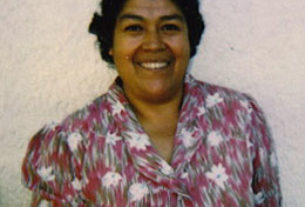Westwords
You’ve heard about those push-and-shove Americans who cross the border with their arms full and want Mexico to stop, look and listen. Well, they’re at it again. These northern do-gooders, wearing Lens Crafters lapel pins and waving the Lions Club banner, are bringing in boxes and barrels of used eyeglasses to give to Mexicans who may not have known they needed them.
If you are a dedicated cynic, that’s one way to spin this story. But there’s another way to tell it. All foreigners aren’t ugly takers. Some are beautiful givers.
Believe it or not, there are people who give up precious vacation time and pay their own transportation costs to Mexico in an effort to help others who can’t help themselves. Some are doctors or eye-care professionals who know the significance of their mission. Some come out of Christian compassion, convinced that charity is a two-way street.
Indeed, benefits do go both ways. Some who are almost blind, who could never afford a pair of glasses and assume they will never see clearly, discover the priceless joy of sight. Some who thought the Cancun hotel strip was Mexico learn about thatch roofs, dirt floors and primitive outhouses.
Debbie Jewell came down from Cincinnati to contribute a miracle or two. Among the recipients of recycled glasses was a 94-year-old woman. “I was totally shocked. When I gave her the glasses, she grabbed me and squeezed. She was so excited to be able to see clearly for the first time.” Debbie also solved a problem for a woman who had been to an optical clinic and had carried a prescription in her purse for two years — because she never had enough pesos to buy glasses.
Col. Corina van de Pol , an Army optometrist at Fort Rucker, Ala., tells of a big kiss she got at La Piedad. She, two other doctors and an assortment of Lions brought in 2,500 pairs of used eyeglasses and served at least half that many Mexicans. “Nobody’s looked at their eyeballs before, and you can see they need glasses,” said the colonel. “You put glasses on them and it’s instantaneous. They can see. It’s a life improvement that they would not have had otherwise. “You can make such a great impact on somebody’s life with what doctors would consider minimal effort.” Van de Pol has made 14 eye trips to Mexico. Almost all of her days have been spent in the dark, performing exams. Now and then she goes out to the dispensing area to see the smiles. In jest, she told a Lion that all recognition seemed to go to those who handed out spectacles. During the conversation, she found a fit for a little woman who responded with typical gratitude. She pulled the taller doctor down and delivered a big, wet kiss on the cheek.
Language problems? Smiles, handshakes, hugs and kisses are universal.
Jon Clark served as interpreter when Wisconsin Lions came to Huajuapan. He knew the visitors knew they were there to help needy people “but I don’t think they had any real idea just how needy the really needy in Mexico are. Some seriously scrappy-looking people came in for the free specs, and some of them had traveled for hours to get them.” Clark watched as the Lions tried to find the correct glasses for an elderly woman. No matter which glasses she wore, she couldn’t see even the big letters on the evaluation chart. The Lions huddled to discuss possible solutions. Clark watched as the woman pretended to read the newspaper while she waited. He saw her eyes were moving all over the page, not left to right and line by line. He concluded she was too embarrassed to admit she couldn’t read. He helped solve the problem by asking which pair of glasses she thought was best. She made an immediate choice and went away with her dignity intact.
A hat weaver walked miles from a remote village for glasses in Huajuapan. He was asked if he had trouble seeing what he was doing. “Oh no, because when I weave my hats, I don’t use my eyes. I do it all by feel.”
Dr. James Sementilli , a Chicago optometrist who has been on several Lions Clubs goodwill missions, told about a woman, mother of 12, who appeared to be blind. She said she was a hog farmer. She said she had never seen her children’s faces. She knew them only by feel and by their voices. “We were able to help, to give her eyeglasses that enabled her to see,” said Sementilli. “She ran for the door as soon as she had the glasses. She didn’t even want to wait for us to fit them. She was running. She said she wanted to go home to see her children for the first time.”
It didn’t seem to matter too much that the frames were a bit old-fashioned.
Dave and Marcia O’Connor of Morgantown, West Virginia , traveled by bus to Matamoros with a church group that originated in Jackson, Tennessee. They brought hundreds of pairs of glasses, repair tools, cleaning solutions, eye drops and eye charts and set up free clinics at churches. “Word spread like wildfire that we were there, and people started lining up long and deep in no time,” said Marcia.The system was simple and not very scientific. Marcia, who speaks Spanish, asked basic questions and conducted chart tests. Dave, an optician, selected the most likely glasses. “It was some kind of hectic every day, but very rewarding,” said Marcia. She told of one young man who could not pass the eye exam to get a job in a factory. He got glasses and went away confident he’d be able to provide for his family.
“An elderly man’s eyes were white with cataracts so bad he was unable to count my fingers. He was in tears because we were there, trying to help him and his family.
“There was a precious little lady, no teeth, deep wrinkles in her face. When I went through the standard questions, she was shy to admit that she never learned to read, that she had never been to school. All she needed was to be able to thread a needle. She earned her income by sewing.
“I dug into my purse and found a little sewing kit that had a tiny needle and fine thread. She sat for about 10 minutes, trying on glasses until she could see to thread that needle. The look on her face was priceless.”
The O’Connors met one youngster with perfect eyesight — who wanted to need glasses. They gave him plain sunglasses. “That evening, as we were going to the church service, the boy was riding his bike in the dark with his shades on.” Restoring sight to those who cannot see is a monumental accomplishment. Some of the stories bring tears. One old-timer said he hadn’t been able to read his Bible for many years. Another put on a pair of glasses, turned to his wife and said: “You are as beautiful as I remember.”




hi I was in Chapala about 15 yrs ago ,im looking for a retirement spot,can I get recommendations for a place to live,is it safe for americans?hoping to go there around next feb,thanks
Yes, but for recommendations, you should look on one of the Lake Chapala area web-boards (chapala.com for example) or join one of the several Facebook groups dedicated to the Lake Chapala area.